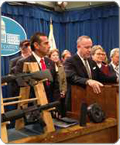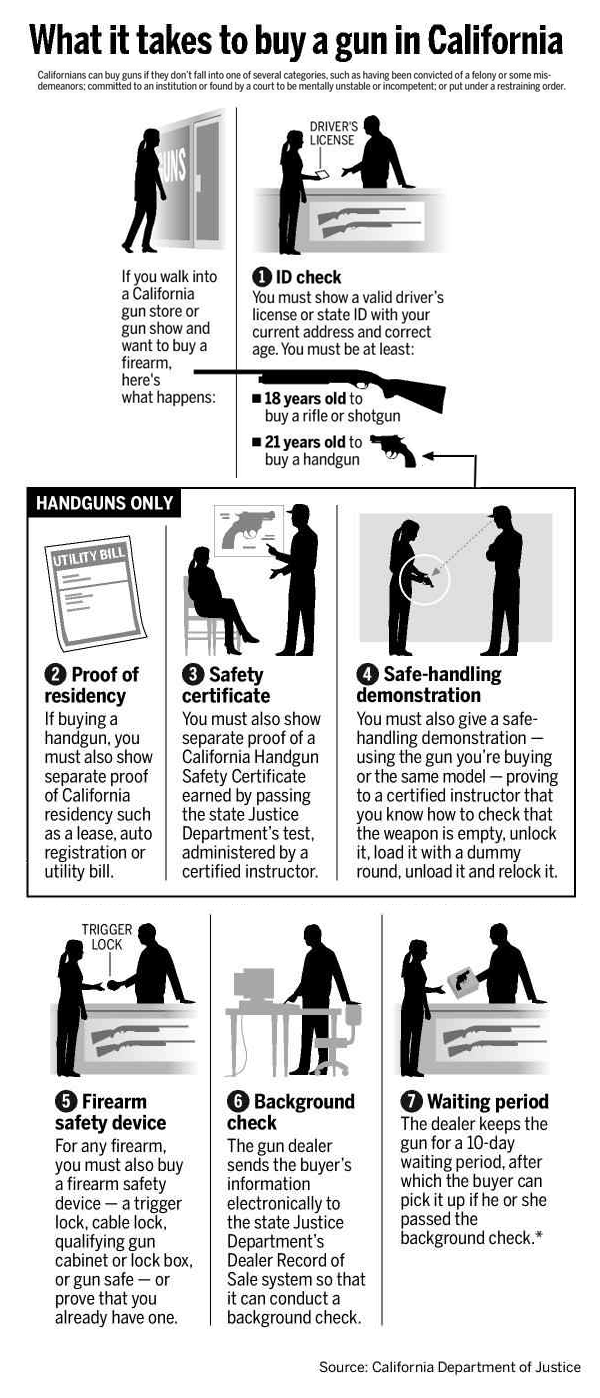
For the past years, California’s background check process has been stopped hundreds of criminals and mentally ill people from purchasing firearms. The state’s system has been thought of as a template in which other states should follow when they revamp their firearm regulations.
In Californian gun stores, every buyer goes through a rigorous background check process. The potential buyer has to submit his or her driver’s license or valid IDs, then their names go through the FBI Instant Criminal Background Check System as well as twenty other database sources which include DMV records, and state mental health records. This type of check is more extensive than the checks done in other states throughout the United States.
California is also one of two states – Rhode Island the other – that requires these checks not just for FFL (Federal Firearm License) gun dealers, but also for private sales including gun shows and even buying a firearm from a friend.

The background checks also apply to Californians who buy a gun through a private seller. Then buyer and seller must get a federally licensed seller to run a background check to complete the transaction.
Due to the success of their firearm regulations, gun control advocates have held the state as a model for the rest of the country to follow suit. This has also been met with much opposition and has become an emotional debate since the shooting tragedies that have occurred in the past year.
This was made clear during the senate hearing where many gun rights advocates have expressed fear that universal background checks would be a prelude to universal gun registrations and might eventually lead to confiscations. At the Senate Judiciary Committee, Wayne LaPierre, executive vice president and CEO of the National Rifle Association, sparred with Sen. Dick Durbin, D-Illinois, on the background check issue after LaPierre argued that more checks would simply force law-abiding citizens to pay more fees for the right to own a gun.
Some statistics are clear: Only 1 percent of California’s background checks lead to denials, so the system barely reduces the number of guns out there. But the national denial rate is 0.6 percent, so California’s checks are obviously much better at preventing people who can’t legally own guns from buying them.
Some of Obama’s recent executive actions and new bills introduced in Congress from both sides of the aisle aim to plug up gun show and private sale loopholes, pressing states and federal agencies to feed more and better-detailed information into the FBI system, but the gun lobby opposes any effort to expand that system’s use to cover gun shows or private, person-to-person sales – representing roughly 40 percent of gun sales.

